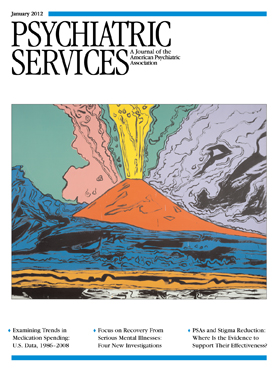Clinician Reactions to Patients With Eating Disorders: A Review of the Literature
Abstract
Objective:
The delivery of psychiatric services may be affected by clinicians' negative reactions to treatment-resistant or stigmatized patient groups. Some research has found that clinicians across professional disciplines react negatively to patients with eating disorders, but empirical data related to this topic have not been systematically reviewed. The authors sought to review all published empirical studies of clinician reactions to patients with eating disorders in order to characterize negative reactions to these patients and identify patient or clinical factors associated with negative reactions.
Methods:
The authors conducted a comprehensive online search for all published studies of clinician reactions in regard to patients with eating disorders. The reference lists of articles found in the literature search were examined to identify additional studies.
Results:
Twenty studies, published between 1984 and 2010, were found. Clinician negative reactions in regard to patients with eating disorders typically reflected frustration, hopelessness, lack of competence, and worry. Inexperienced clinicians appeared to hold more negative attitudes toward patients with eating disorders than toward other patient groups, but experienced psychotherapists did not experience strong negative reactions to patients with eating disorders. Medical practitioners consistently reported strong feelings of lack of competence in treating eating disorders. Negative reactions to patients with eating disorders were associated with patients' lack of improvement and personality pathology and with clinicians' stigmatizing beliefs, inexperience, and gender.
Conclusions:
Research about the impact of negative clinician attitudes toward patients with eating disorders on psychiatric service delivery, including multivariate analyses using larger samples, comparison groups, validated instruments, and experimental methods, is much needed. (Psychiatric Services 63:73–78, 2012)



